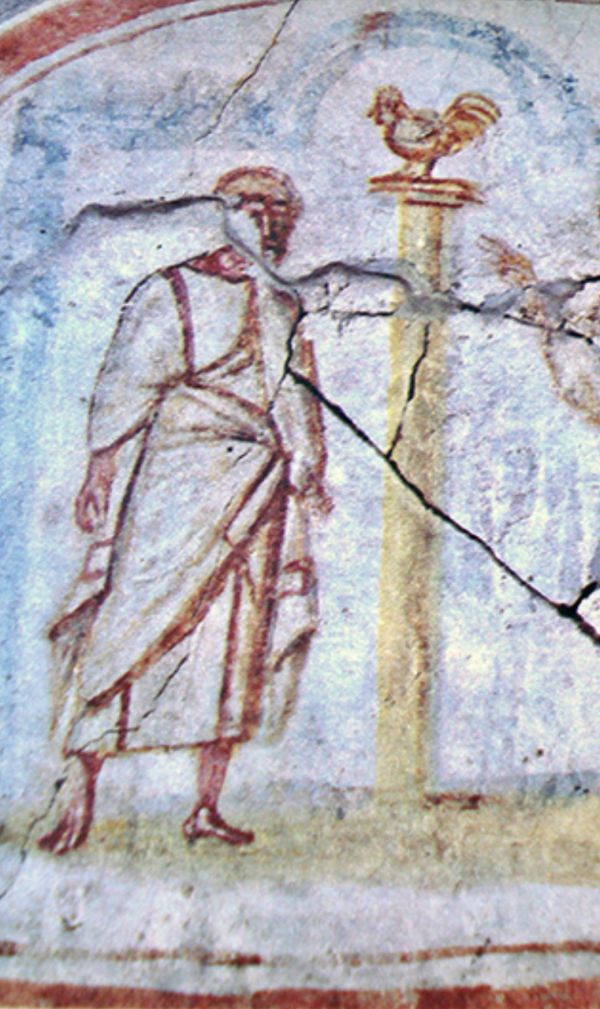(Jn 13:21-33.36-38)
«I will lay down my life for you» - just to command.
The Lord wants each of us “at the table” to ask himself the question of whether by chance we are involved in some betrayal.
Not to blame and plant ourselves there, but to meet us: each one is an admirer ‘and’ opponent of the Master.
We are brilliance ‘and’ darkness - coexistent hips, more or less integrated; also competitive ones.
Aspects that can turn as baby foods, for each new ‘genesis’ - which once emerged can become strengths.
The road is blocked only in front of the person who continues to be conditioned. Nothing is revealed there; the prodigy of the transmutation of our abyss will not take place.
The liturgy of the Word puts in contact with a Jesus pervaded by a sense of weakness; his loneliness becomes acute.
On mission, we too are sometimes at the mercy of despondency: perhaps God has deceived us, dragging us into an absurd enterprise?
No, we are not engaged and abandoned to an ignoble logic, to a perverse generation: the force of Life itself is littered with ‘tombstones’ and has various faces. Beneficial influxes.
The favourable path is devoid of prestige, of recognised tasks and majesty: they tend to placate us, and not to dig.
Often it’s precisely the ailments that improve judgment.
The trickle of problems can elicit the Voice of the most authentic part of ourselves; become an incisive ‘echo’ to find and complete ourselves - bringing forward the pioneering heart, instead of holding it back.
The road of trial and imbalance rouses us from the harmful ageing of the spirit. It recovers contrary energies, the opposite sides, the incompatible desires, the passions [allied] to which we have not given space.
Even in the torturous experience of the limit, God wants to reach out our variegated ‘seed’, so that it does not allow itself to be plundered - not even by the dismay of having taken the «morsel» together and being the traitors.
Nothing is invalidating.
There is only one toxic, chronic, death ambit that annihilates everything and has no active germs inherent in it: that which obscures and detests primary change.
There the horizon narrows and only an abyss remains - or the bland that infects to make us give up and retreat.
Finally, only fears remain, the half-choices, the neuroses silenced by compromise that tries to fill the precious sense of emptiness.
The story of incomprehensible solitude of Christ alongside the traitor and the renegade is written in our hearts. It’s all reality - but for salvation, for a renewed intimacy and conviction.
The missionary vocation is extinguished and stagnates only due to the weight of calculation and common mentality - where naked poverty of the being discordant that we are doesn’t engrave (nor clink).
Without abandonment suffered, man doesn’t become universal, on the contrary he tends to attenuate the best instruments of God’s power.
On that steppe ground the Lord is giving us the friendship of a gaze’ shift.
Without the restlessness of profound and humiliating disturbance, without the surrendering of one's humanity - in extreme weakness - our dissatisfied puppet lingers, contenting itself.
Despite the admiration for values, it too becomes a residual larva. A caricature of the being we might have become: women and men with a contemplative eye.
Complete ones from within, like Jesus.
[Holy Tuesday, April 15, 2025]












